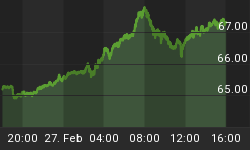Russia’s economy is sinking, its currency has collapsed, and its debt has now officially been designated junk status. Russia is quickly spiraling towards a $150B default nightmare that could cost investors billions of dollars and shut the country out of most funding markets.
About a week ago, Fitch Ratings downgraded the Russian sovereign debt to C, signifying a high likelihood for default. Fitch downgraded Russia's long-term foreign currency issuer default rating (IDR) to 'C' from 'B', reflecting Fitch's view that a sovereign default is imminent. And, D-Day is already here: On March 16, if the Russian treasury pays its US Dollar Eurobond coupons in rubles, this will constitute a sovereign default, on the expiration of the 30-day grace period.
On the said date, the Russian government is scheduled to pay back $117 million in interest on dollar bonds with another $615m due later in the month. Failure to comply would trigger a potential wave of defaults to the tune of ~$150 billion in foreign-currency debt owed by both the Russian government and companies. That would also mark Russia’s first foreign-currency default since the 1917 revolution, potentially shutting the country out of most funding markets--and wrecking further havoc on an economy reeling from the effects of the harshest sanctions in modern history.
The United States, European Union, and their allies have imposed severe sanctions on Moscow. The penalties have not only frozen more than half of the Russian central bank’s $300bn in assets and sent the rouble losing nearly two-thirds of its value against the dollar year-to-date but also threaten to cut off Russia’s key gravy train though blanket energy import bans. The United States has imposed a total ban on Russian crude and other energy imports while the EU has pledged to cut Russian gas imports by two-thirds before the end of the year.
Russia’s Default
Russian President Vladimir Putin is putting up a brave face, saying Moscow can repay its debts-- but in roubles as long as the sanctions don’t allow dollar settlements. Some of the bonds that Russia has issued have a clause that allows payment in roubles, but the interest payments that are due Wednesday must be paid in dollars. Unfortunately, given the diminished value of its currency, that’s a really tall order. Indeed, Paying in local currency rather than dollars could set off a significant wave of defaults.
Russia and Russian companies owe about $150bn in foreign-currency debt. If Moscow fails to make a payment, credit rating agencies will likely consider it to be in default and bondholders will begin to negotiate. But those negotiations already appear doomed given Russia’s economic chokehold and growing isolation.
This is simply unprecedented. In terms of emerging markets, Russia’s situation is comparable to what happened in Argentina in 2020, only much worse. According to Gerard DiPippo, a senior economics fellow at the Center for Strategic and International Studies, “The big difference here is it’s a shock that investors were not expecting say two or three months ago, whereas, in Argentina, you could see the problems building.”
A debt default could drive Russia’s few remaining foreign investors out of the country, further isolating it. More than 300 foreign companies have halted operations or exited the country, with Putin threatening to nationalize their assets.
To be fair, the Russian government is not that indebted. Part of Moscow’s “fortress Russia” strategy was to build up the country’s balance sheet primarily with foreign exchange reserves and some gold, and then maintain low debt levels. Russia’s domestic debt was about 13% of GDP last year, with external debt ~$150bn and only $45bn of that is actually owned by the Russian government. Most of that debt is owned by Russian companies and Russian banks, DiPippo has told Al Jazeera.
Russia’s bonds are mostly held by institutional investors including hedge funds, pension funds, and corporations. These bonds can still be traded on secondary markets, but at massive discounts: they are currently trading at about 20 cents on the dollar.
“The question is whether they will get their money back and whether they will be repaid in the end. The bond price reflects those expectations,” DiPippo has told Al Jazeera.
















